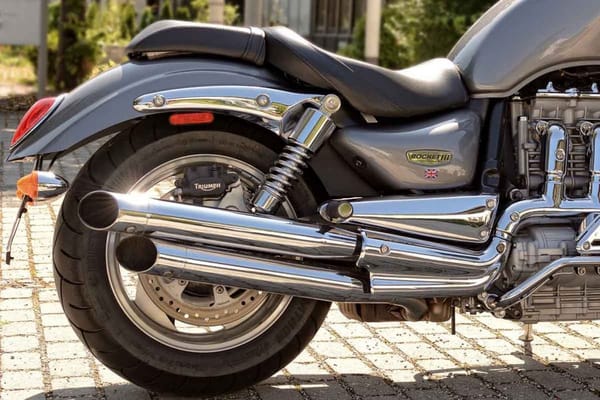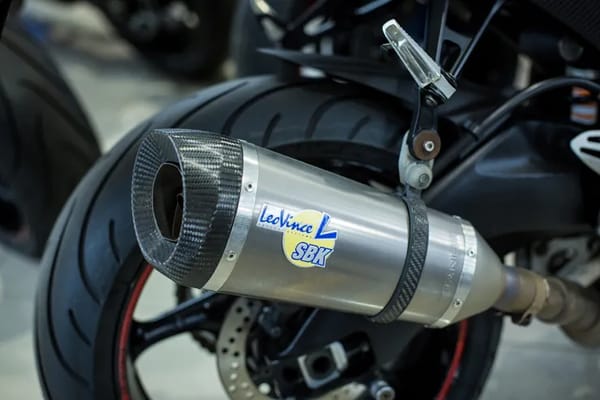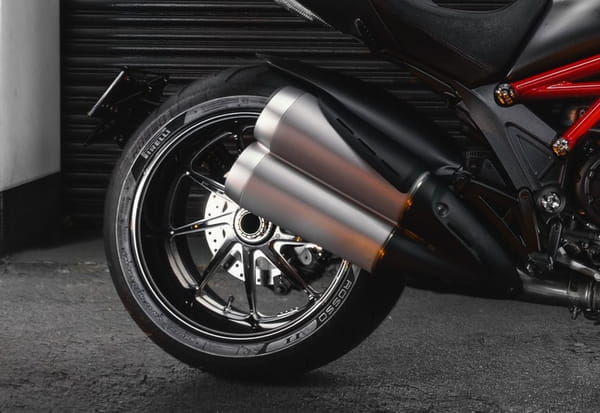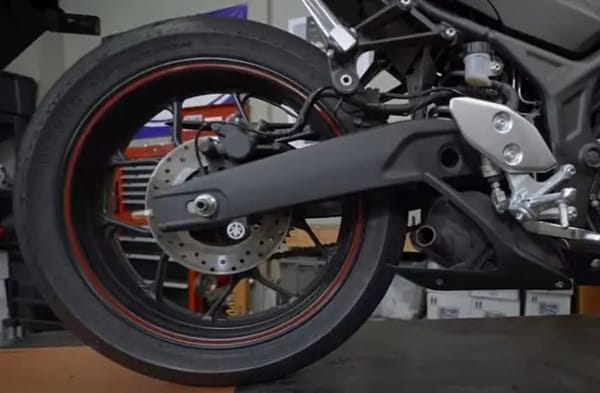When it comes to motorcycles, there are several key components that work together to ensure optimal performance and rider comfort.
One such component is the muffler, an essential part of the motorcycle’s exhaust system.
In this article, we will delve into the meaning and function of a muffler on a motorcycle, its impact on engine performance, and whether it is advisable to run a motorcycle without a muffler.
Muffler Motorcycle Meaning

To comprehend the significance of a muffler on a motorcycle, it is vital to understand its purpose within the exhaust system.
The muffler, also referred to as a silencer, is a device designed to reduce the noise produced by the engine during the exhaust process.
It is typically located towards the rear of the motorcycle, attached to the exhaust pipe.
Muffler Motorcycle Function

The primary function of a muffler on a motorcycle is to minimize the noise generated by the engine’s exhaust gases as they exit the motorcycle.
It achieves this by employing various internal chambers, baffles, and sound-absorbing materials that work together to dampen and redirect the sound waves produced by the engine.
As a result, the motorcycle emits a more pleasant and acceptable sound level, complying with noise regulations and ensuring a quieter riding experience.
Additionally, the muffler plays a crucial role in controlling the backpressure within the exhaust system.
Backpressure refers to the resistance encountered by the exhaust gases as they exit the engine.
The muffler’s design incorporates carefully calculated chambers and baffles to balance the need for noise reduction while maintaining optimal engine performance.
Does the Muffler Affect Engine Performance?

Contrary to popular belief, the muffler does have a certain degree of influence on engine performance.
Although its primary purpose is noise reduction, the muffler’s design can affect the flow dynamics of exhaust gases, thereby influencing the engine’s overall performance.
An efficient muffler design allows for proper scavenging, which is the removal of exhaust gases from the combustion chamber.
An optimized scavenging process helps improve the engine’s efficiency by enhancing the intake of fresh air-fuel mixture, resulting in increased power output.
Conversely, a poorly designed or restrictive muffler can hinder the scavenging process, leading to decreased performance.
Is It Bad to Run a Motorcycle Without a Muffler?

Running a motorcycle without a muffler, often referred to as “straight piping,” may seem enticing to some riders seeking a louder and more aggressive exhaust note.
However, it is generally not recommended to remove or bypass the muffler entirely.
Operating a motorcycle without a muffler can have several negative consequences.
Firstly, it will significantly increase the noise level emitted by the motorcycle, potentially exceeding legal limits and irritating both riders and bystanders.
Moreover, removing the muffler can disrupt the backpressure balance within the exhaust system, leading to a loss of performance, reduced fuel efficiency, and potentially harmful effects on engine longevity.
Conclusion
In conclusion, the muffler on a motorcycle serves two primary functions: noise reduction and maintaining optimal engine performance.
Its design and placement within the exhaust system are carefully engineered to strike a balance between these factors.
Removing or altering the muffler can have adverse effects on the motorcycle’s performance, noise level, and compliance with regulations.
It is advisable to consult with experts and adhere to local laws and regulations regarding muffler modifications to ensure a safe, efficient, and enjoyable riding experience.
FAQ
Is Muffler a Silencer?
Yes, the muffler on a motorcycle is commonly referred to as a silencer. The terms “muffler” and “silencer” are often used interchangeably to describe the same component of the motorcycle’s exhaust system.
The primary function of the muffler is to reduce the noise produced by the engine during the exhaust process, hence the term “silencer.”
By incorporating internal chambers, baffles, and sound-absorbing materials, the muffler works to dampen and redirect the sound waves, resulting in a quieter exhaust note.
Does Muffler Affect Motorcycle Performance?
The muffler can affect motorcycle performance to some extent. While its primary purpose is to reduce noise, the muffler’s design can impact the flow of exhaust gases and, consequently, engine performance.
An efficient muffler design facilitates proper scavenging, improving engine efficiency and increasing power output.
Conversely, a poorly designed or restrictive muffler can hinder scavenging and lead to decreased performance.
It is important to strike a balance between noise reduction and performance when considering muffler modifications.
Consulting with professionals experienced in exhaust system modifications is advisable to ensure optimal performance without compromising legal compliance.
How Many Types of Muffler For Motorcycle?
There are several types of mufflers for motorcycles:
Stock Muffler: The standard muffler that comes with the motorcycle from the factory.
Slip-On Muffler: An aftermarket option that replaces the stock muffler without modifying the rest of the exhaust system.
Full System Muffler: Replaces the entire exhaust system, including the header pipes, for improved performance.
Performance Muffler: Specifically designed to enhance engine performance with advanced internal designs.
Straight Pipe Muffler: Removes internal obstructions for increased exhaust flow and a louder sound, but may not comply with noise regulations.
Consider legal requirements and your desired sound/performance when selecting a muffler type. Consulting experts can help you make an informed choice.
Originally posted 2023-07-02 15:17:19.
